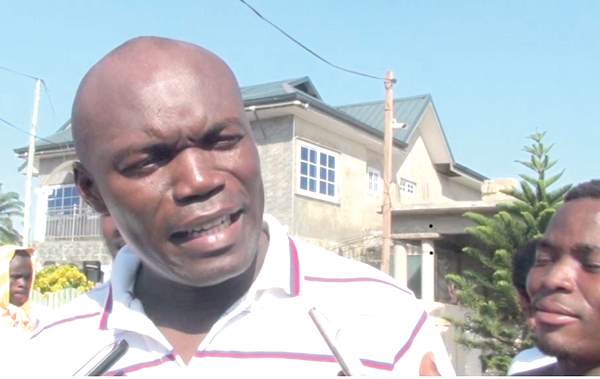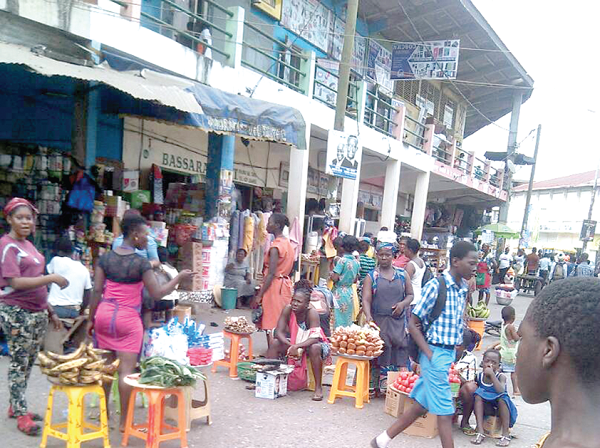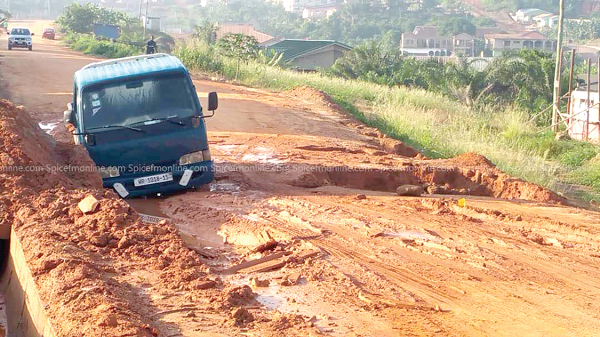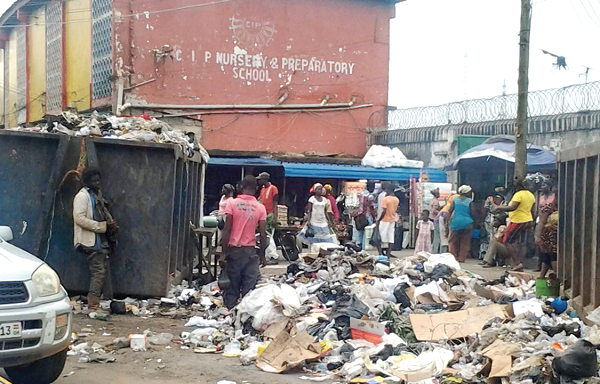
Sekondi-Takoradi:Twin-city struggling to regain former glory
The old twin-city of Sekondi-Takoradi in the Western Region is struggling to contain a boom in its population.
The country’s third largest city, which is the commercial and industrial hub of the oil-rich region, is growing at a very fast pace but has the same old infrastructure serving a projected population of about 700,000 (2017) an increase from the 2010 figure of 555,548.
The twin-city is now congested and saddled with speculative land grabbing. It lacks spatial planning and is experiencing massive destruction of its natural vegetation as the beautiful hills have been destroyed for the purposes of constructing commercial and residential accommodation.
The city is currently battling with indiscriminate waste disposal which has become a dent on its newly acquired name of “oil-city”.
Good old days
Sekondi/Takoradi in the past played host to timber and cocoa processing plants, trading posts, vibrant railways and port, which employed thousands of locals and other Ghanaians from other parts of the country, but today, the city has nothing to show for it.
These industries and the vibrant trading activities went down, leading to a near collapse of the local economy to the displeasure of many inhabitants who wondered if the twin-city would ever work again.
However, the community came back alive when oil companies decided to use the twin-city as their shore base to support upstream oil and gas activities.
Advertisement

Traders and hawkers have taken over pavements meant for pedestrians
Spatial plan
The oil and gas activities have brought some life back to the struggling city, but that is happening at a time when there appears to be no proper plan to manage the heady deployment of oil activities or a corresponding increase in the social infrastructure to meet other commercial and social needs.
The sad aspect is that, being one of the oldest settlements, the twin-city seems not to be following any spatial planning to guide its development. Takoradi is congested, while Sekondi has lost its vibrancy.
The situation became compounded after the oil find. The region’s housing stock in the 2010 census was 380,104, within the Sekondi-Takoradi Metropolis, but there has been a high rise in the number of land owners due mainly to speculation, thus moving the total housing stock sharply from 24,817 housing units to 60,705 units.
The urban areas in the metropolis, the census indicated, had 57,599 while the rural areas accounted for 3,106 of the total housing stock, as the population of the metropolis have almost urbanised.
All these developments put pressure on existing utilities, especially water, transportation healthcare and education.
Exodus
Today, as a result of mass movement of people in search of jobs in the city, the level of congestion is unbeaable, giving birth to crime, prostitution and commercial activities that have culminated in high standards of living.
After the collapse of the timber and cocoa processing industries and rail system, Tema, Accra and Kumasi were the preferred destinations for regional branches for financial and non-financial institutions.
The oil businesses have following attracted both skilled and unskilled labour to support the industry and the situation has resulted in a high demand for accommodation, land and increase in pedestrian and vehicular traffic.
Property owners have swiftly converted residential facilities to dollar-rated offices.
Tenants in the city hitherto had no problem with rent advance, since three-bedroom houses with compounds cost between GH¢60 and GH¢150 a month, with single rooms going for next to nothing.
Water and electricity was not an issue for residents since the Ghana Water Company Limited and other utility providers were able to meet the demands from the population while the assembly handled waste management with relative ease.
Today, rent has gone through the roof, and three-bedroom accommodation now goes for anything between GH¢450 and GH¢650; Electricity supply is stable, but water is difficult to reach some areas even in the heart of the city.

A deplorable road in the metropolis
Transportation & traffic
Again, movement within the twin-city is no longer an easy task since the city is witnessing an extreme surge in the number of vehicles on the roads; commercial, private and heavy-duty trucks.
Various bus terminals created by the Sekondi/Takoradi Metropolitan Assembly have outlived their purpose, so commercial drivers have resorted to a lawless regime where they do their own thing.
Rush hours are always chaotic in the city. In the past, it took less than 10 minutes to drive at 50 km/hr from one end of the city to the other. But today, the difficulty is that because of vehicular traffic, the same distance of 12 to 20km can be covered in 45 minutes.
The city is overwhelmed by “trotros” and taxis as every open space, frontage of shops and bus-stops have been turned into terminals.
Hawking and banks
The levels of impunity on the part of traders and some commercial banks have reached uncontrolled levels as traders and these banks have shared and converted pedestrian walkways into car parks and trading areas.
The banks have an improvised concrete or metal to fill the space between the pavement and the road and allow their vehicles to park, thereby impeding access to pedestrians, especially the disabled.
The same could be said about hawkers and shop owners displaying their wares on the pavement but woe to any pedestrian who accidentally pushes their wares down.
The same can thing about the twin-city is that Sekondi is a very ‘slow’ place. It has no star-rated hotels, restaurants, casinos, nightclubs or nightlife, only few “drinking bars” which play loud music to disturb neighbours. Just 9.1 kilometres away from Sekondi, Takoradi has grown into a hard-to-manage congested area, with its attendant ramifications.

Indiscriminate dumping of waste at the market square
Crime situation
The increased population in Sekondi-Takoradi has also resulted in petty crime.
Areas such as Anaji, New Site, Takoradi Fijai and BU have become hotspots for petty robberies – from shops offices to residential areas with at least, four reported crime cases in a month.
Mr Isaac Kwesi A. Angu a resident of Takoradi and a carpenter, described the situation as unsafe.
“I went to the residence of someone to work, not knowing that thieves had ransacked the next apartment. You cannot go to church, close late and stand at a bus stop alone – something must be done.”
Responding to concerns raised by residents, the Western Regional Public Relations Officer of the Ghana Police Service, DSP Olivia Ewurabena Adiku, said the situation had come to the notice of the police and that they had put strategies in place to combat it.
“We realised that most of these crimes are committed during the day, therefore we have extended our patrols. We have increased day and night patrols, plain cloth police officers are picking information as well as increase motorbike patrols to curb the situation,” she said.
DSP Adiku also urged the public to support the work of the police by taking their personal security seriously. “When you are travelling, inform your neighbour so that when they see any stranger or strange movement in your premises they can question and call the police.”
Congestions
The Presiding Member of the Effia Municipality, Mr John Davis, said the problems with Sekondi-Takoradi and other adjoining districts and municipalities needed all hands on deck.
A resident, Mr Stephen E. Kaku Buah a decongestion crusader, who wants to see metropolis free of filth, congestion and other lawless acts, described the current situation as shameful.
The city managers
The managers of the city, Sekondi-Takoradi Metropolitan Assembly (STMA), have acknowledged that the twin-city is growing beyond its capacity and must be checked.
The Head of Public Relations at the STMA, Mr John Laste, told the Daily Graphic that the assembly would no longer allow the level of lawlessness to continue.
“The absence of spatial planning has caused most of these challenges and I can tell you that we have to trigger the development of an integrated spatial plan for our future development and to mould the city,” he said.
The plan, he said, would lead to the creation of financial and administrative hubs within the twin-city, adding: “In Sekondi, we are looking at redeveloping and making it an administrative and heritage hub, while Takoradi becomes the financial centre where most economic activities will be. In Sekondi, we have the fort the the first West African bank building, the fish-roundabout, relics of British Sekondi and other historic buildings that can boost tourism, create jobs and wealth.”
The development of some of these infrastructures, he said, required private capital, so the assembly was reviewing some proposals to drive the change.



